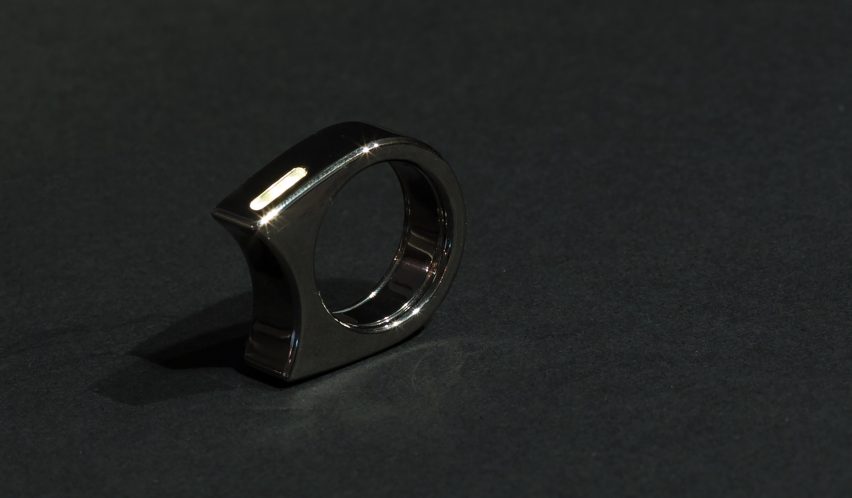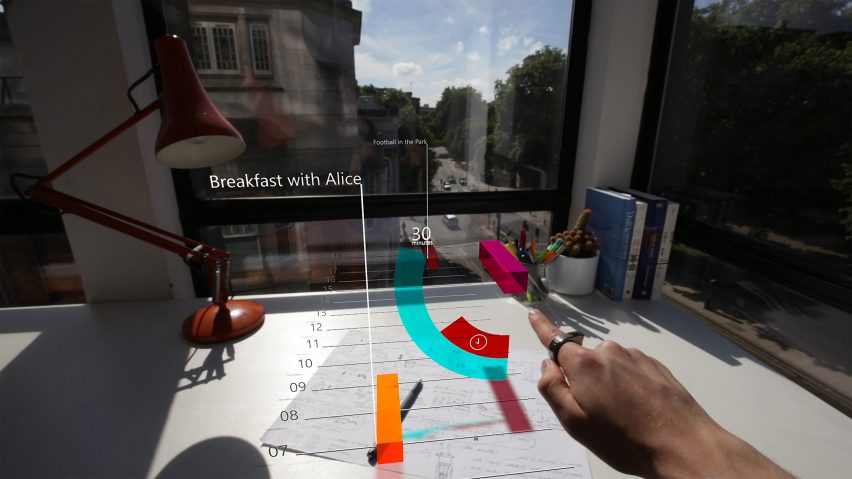One ring rules an entire augmented-reality interface in this project by Royal College of Art graduate Nat Martin.
Scroll is a prototype controller that looks like an ordinary ring. Whereas most current augmented-reality (AR) experiences rely on smartphones or separate handheld controllers as a means of interaction, Scroll sits discreetly on a user's hand, and the gestures required to operate it are minimal.

The basic gestures include flicking the hand, pointing the fingers as if with a laser pointer, scrolling the thumb against the side of the ring, and tapping it.
This makes Scroll the kind of controller that could be operated in public without the user attracting too much attention.
Martin, a student of the Royal College of Arts' masters programme in Innovation Design Engineering, said Scroll was the result of his search for a more "delightful and intuitive" AR interface.

"Scroll is a proposal for rethinking our everyday digital interactions in space using emerging AR technologies to create a more delightful and intuitive means of interacting with everyday digital functions," said Martin.
"The more an interface is able to make use of intuitive meaning, the more efficient and simple it can be."
The slim ring contains a gyroscope so the ring can identify in which direction it is facing, as well as a scroller and touch sensor.
To demonstrate its potential, Martin has designed an interface that translates the "everyday digital experience" into AR, incorporating features such as calendars, playlists and maps. These all appear as visualisations superimposed over the users' field of view and can be interacted with spatially.
Martin conducted several experiments, testing where people would intuitively position various elements in space.
"People tended to place grandparent and bosses higher up," he said. "Time also mapped very well onto space. People usually saw the future ahead of them, with themselves centred in the present, and the past behind them."
"I was interested in how these embedded understandings of space could be leveraged when designing an interface," he added.
The Scroll prototype is compatible with existing AR headsets like Microsoft HoloLens.
AR technology appears to be in the ascendency, with Mark Zuckerberg recently predicting that it will ultimately make most of the hardware we use today obsolete. His company, Facebook, is making a big push into AR, with a new platform currently in closed beta.
Martin's work was exhibited at the RCA's graduate show, which ran from 24 June to 2 July at the school's Kensington campus. Another student at the show, Brian Black, demonstrated a virtual-reality concept that would allow ordinary people on earth to drive NASA's space exploration rovers.
